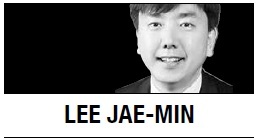 Much has been written and spoken about the Korea-US Free Trade Agreement, but very little of it has been directed at the procedural ‘homework’ scattered throughout the text. Some even regard it as cosmetic provisions or say that it is of a hortatory nature. On the contrary, one unique aspect of the FTA is the specific legal obligation to guarantee procedural due process in agency investigations and determinations. Interested parties’ right to be heard and right to defend themselves are underscored in the text of the agreement.
Much has been written and spoken about the Korea-US Free Trade Agreement, but very little of it has been directed at the procedural ‘homework’ scattered throughout the text. Some even regard it as cosmetic provisions or say that it is of a hortatory nature. On the contrary, one unique aspect of the FTA is the specific legal obligation to guarantee procedural due process in agency investigations and determinations. Interested parties’ right to be heard and right to defend themselves are underscored in the text of the agreement.Compared to other heavyweight issues in the FTA, these small, nicely worded provisions do not stand out. However to the agencies concerned they pose a real logistical burden because sometimes it may mean an overhaul in administering their daily operations. They would find it embarrassing to learn that a small procedural defect could render an otherwise legitimate agency determination problematic.
The Competition Chapter of the Korea-US FTA offers an example. It is one of the shortest chapters with nine provisions, mainly underscoring cooperation between competition authorities of the two countries and recognizing the authority to apply competition policies according to respective domestic laws. At the same time, the chapter sets forth procedural steps to be taken in the course of investigations and hearings, citing procedural due process. Not surprising at all, as similar procedural provisions appear in other parts as well.
For the first time in five years since the agreement went into effect, these procedural provisions are now being mentioned. In response to the Korea Fair Trade Commission’s decision in late December last year to impose a 1.03 trillion won ($854 million) fine for anti-competitive business practices, Qualcomm, among others, referred to its procedural rights under the Korea-US FTA.
According to the press release of the San Diego-based company, here are the highlights of its assertions: its fundamental procedural safeguards, such as access to case files and right to cross-examine, guaranteed under the Korea-US FTA were breached. Again, this development marks the first instance where a US corporation refers to, in an actual investigation, largely forgotten procedural provisions of the FTA.
As the KFTC has dealt with many high profile antitrust cases recently amid heightened scrutiny and as the agency has been particularly keen to the requirements of the Korea-US FTA, it remains to be seen how much of Qualcomm’s assertion would actually prevail. Nonetheless, the company’s immediate response is a meaningful refresher in our minds of the procedural elements of the FTA.
Given the enormity of the amount of the proposed fine, lengthy legal battles seem inevitable, as with the KFTC’s 2009 determination against the same company. So, most probably, a final agency determination, once officially issued, will be challenged to the Seoul High Court, and possibly again to the Supreme Court. The judicial proceeding will determine whether the company’s business practices constitute a violation of the competition law of Korea.
Regardless of the domestic judicial proceeding, if Qualcomm holds on to its claim of procedural defects, the matter will register itself in the long list of outstanding bilateral trade issues. As the company has been subject to similar probes in other jurisdictions for several years -- for instance, in China in 2015, it settled a similar investigation by agreeing to pay a $975 million fine -- the KFTC’s decision would not stand out. If anything, it seems to represent a natural flow of investigation on the part of Korea. But the timing of the decision could still be sensitive as the new US administration may try to find every reason to bring attention back to the Korea-US FTA in one way or another.
By Lee Jae-min
-
Articles by Korea Herald




![[Herald Interview] 'Amid aging population, Korea to invite more young professionals from overseas'](http://res.heraldm.com/phpwas/restmb_idxmake.php?idx=644&simg=/content/image/2024/04/24/20240424050844_0.jpg&u=20240424200058)













![[KH Explains] Korean shipbuilding stocks rally: Real growth or bubble?](http://res.heraldm.com/phpwas/restmb_idxmake.php?idx=652&simg=/content/image/2024/04/25/20240425050656_0.jpg&u=)

